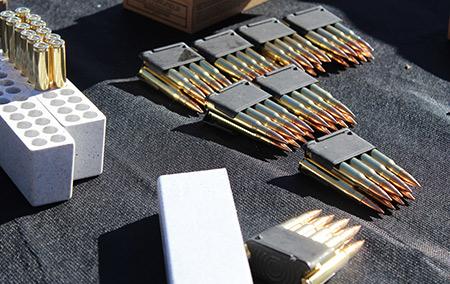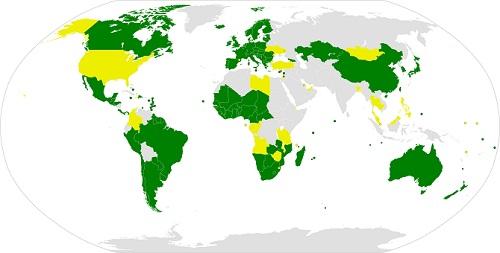
The Arms Trade Treaty (ATT)The Arms Trade Treaty (ATT) was adopted by the UN General Assembly in April 2013 and entered into force on 24 December 2014. Today, 110 States are Party to the Treaty. The effective implementation of the Treaty provisions as well as its universalisation will secure the impact of the ATT on global arms transfer. Legal and administrative assistanceHowever, being able to control arms transfer carries resource implications. Countries might need legal and/or administrative assistance in order to be able to effectively implement the Treaty. This project assists a number of non-EU countries, upon their request, in strengthening their arms transfer systems in line with the requirements of the ATT. There is also a consistent effort to reach out to countries not yet party to the ATT. The first EU outreach project was co-financed by the Government of the Federal Republic of Germany and the EU under Council Decision 2013/768/CFSP as of December, 2013. BAFA and Expertise France have been mandated to implement the second phase of the EU’s activities in support of the implementation of the (ATT), pursuant to the Council Decision 2017/915 /CFSP as of May, 2017. |

|
 Map showing which states have signed or ratified the Treaty - Wikimedia Commons |
EU P2P Conventional Arms Export Control Outreach Project (COARM OP)The Conventional Arms Export Control Outreach Project (COARM OP) was initiated in 2008. It first focussed on the close neighbourhood of the EU. Beneficiary countries traditionally include the countries of South Eastern Europe, and North African, Mediterranean, Eastern European and Caucasian partners of the European Neighbourhood Policy. Central to the objectives of the arms export control outreach activities is the EU policy in the field of Disarmament, Non-Proliferation and Arms Export Control. |

|
Objective and outreach activities
The overall objective is to assist and cooperate with non-EU countries in support of transparent and responsible arms transfers.
EU conventional arms export control outreach activities focussed initially on regional seminars.
Over time, the project has developed more targeted and needs-adjusted assistance measures such as:
- study visits to EU member-States authorities
- tailor-made workshops upon request of partner countries
- experts meetings offering a forum of dialogue between EU experts and foreign government officials
- assessment events to track and evaluate progress over agreed objectives
Since 2009, activities are implemented by the German Federal Office for Economic Affairs and Export Control (BAFA).
The objectives of the seminars include the promotion of the criteria and principles of Common Position 2008/944/CFSP, and assistance in drafting and implementing legislation to ensure effective control of arms exports.
Following a series of successful implementation of outreach projects (initially under the Joint Action 2008/230/CFSP and then, in accordance with Council Decisions 2012/711/CFSP of November 2012 and 2015/2309/CFSP of December 2015), the fourth phase of COARM outreach project kicked off in April 2018, pursuant to Council Decision 2018/101/CFSP on the promotion of effective arms export controls.
